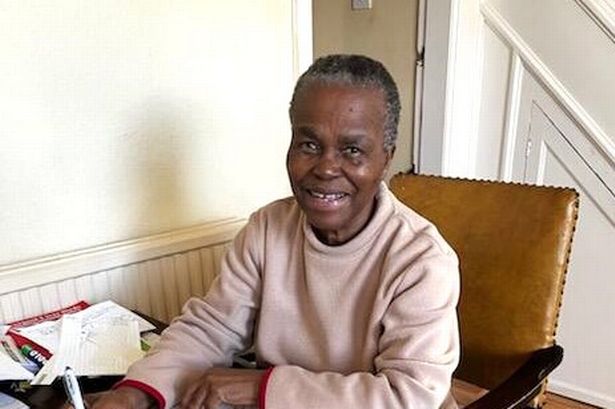A woman who left South Africa to train as a nurse could not return with her husband as their marriage was "forbidden".
Protasia Torkington moved to Liverpool in 1968 when she was 28, to train to be a children's nurse. She hoped to take her skills back to South Africa, where the healthcare conditions for Black children were poor.
She said: "[Children were] coming into hospitals half dead suffering from many ailments including malnutrition. The conditions were terrible."
READ MORE: Brianna Ghey live court updates as murder trial continues
READ MORE:Try Liverpool Echo Premium for 99p with no ads, fun puzzles and brilliant new features
Protasia, 83, continued: "I married a White Catholic priest, who was born in Manchester but lived for a time in South Africa, where we met and began our relationship. He followed me over to the UK.
“We married in 1969. Due to our mixed marriage I could not go back as I would have been imprisoned and they would not have allowed my husband to re-enter”.
Having trained as a general nurse and a midwife in South Africa, the mum-of-two came to the UK to train in paediatrics. She said: "I thought if I went to train as a nurse in the UK I could come back and set up something in the community due to the nursing conditions.
"The conditions were terrible for Black children in South Africa and they were coming into hospitals half dead suffering from many ailments including malnutrition. If they were White they would be easily treated and it would not happen in the first place".
In her book, “My Story – Fleeing Apartheid – Landing in Liverpool” Protasia gives an account of her life. Protasia decided to write her memoirs for her four grandchildren, and as she explored her past in apartheid South Africa and life in Liverpool she realised “it will be pertinent to everyone who is concerned about inequalities, racism and discrimination”.
She said: "I grew up in (Ndonyane) a rural area where I did not see a White face until I went to college aged 17. The college was for Black people, there were some teachers who were Black, but it was run by White people who were members of religious congregations.
"Women and children were not allowed to go into cities, only people who worked. If you tried to travel into the city and were found to not have permission to be there you would be imprisoned.
"As a woman you could not travel anywhere outside your village without written permission of your parent or guardian and this had to be agreed by the apartheid administrators and without permissions you would be jailed. Women faced even greater restriction of movement than men".
After leaving South Africa the authorities found out she married a White man and they would visit her family asking about her. They asked if she was part of the ANC, if she was a fighter and what she was really doing in the UK.
Protasia, who lives in Hunts Cross, added: "It was sad to leave my family, friends and country. When I went back for the first time in 1974 I was a British citizen and this stopped the authorities from questioning me as I was British”.
Life in the UK was not as it seemed, she continued: "I was living in the Smithdown area of Liverpool when I first came. I did not know there were Black people in Liverpool and never saw any in the shops, or anywhere. I was surprised there was racism in the health services in the UK. I saw this in South Africa under apartheid, but did not expect it in the UK.
"In the 1960s and 70s, some people were very racist. Others were very welcoming and supportive".
"I thought I was coming to heaven and everything would be brilliant, it was not like that at all. I later got involved in community based action research in areas of racism in the National Health Service and the wider community”.
While in the UK Protasia was active in setting up community organisations including; Mary Seacole House, providing mental health advocacy and support for Black and minority people, The City Council's translation and Interpreting service and the Sickle Cell Centre, which provided advice and support for Black people and families suffering from Sickle Cell.
In 1996 to 1997 Protasia took a sabbatical doing community based action on the health needs of Blacks in South Africa which resulted in a community clinic; Themba Lesizwe Clinic (meaning The Hope of the Nation). It’s a 24 hour facility, based in Port Shetstone, a place that had no previous health facilities.
Protasia continued: "People should fight at a level where you can make more impact on the lives of people under oppression. I shared my story about apartheid in the UK in many meetings within the Liverpool community.
"This inspired people to help campaigns to bring down the apartheid system. People in Liverpool were always asking how they could help and we rallied together and even sent money to help support people in South Africa, who were in extreme poverty, due to the apartheid system".
My Story – Fleeing Apartheid – Landing in Liverpool is available from News from Nowhere, Bold Street, Liverpool 1, Still Out of Print, Smithdown Road, L15 and the publishers at spennithornepublications@gmail.com
The Liverpool Daily Post newsletter delves into the biggest stories on Merseyside

